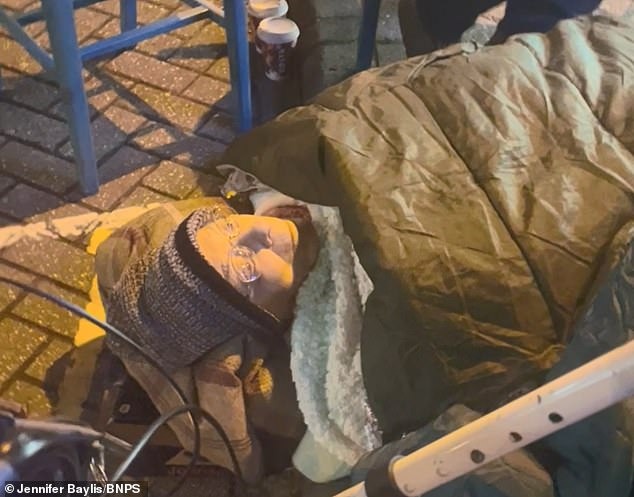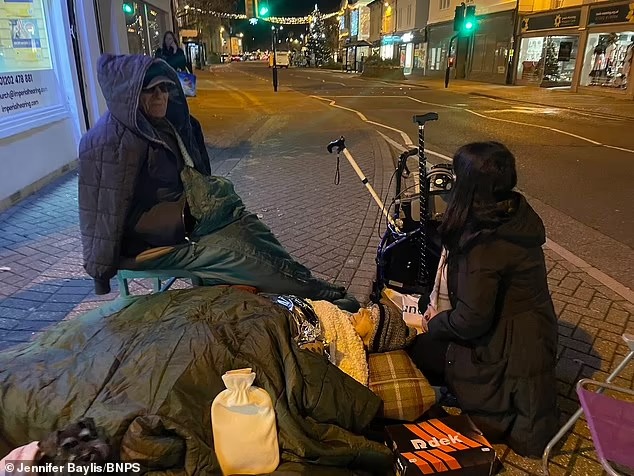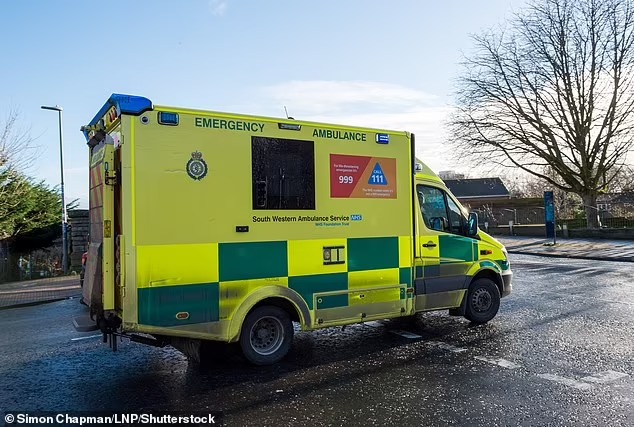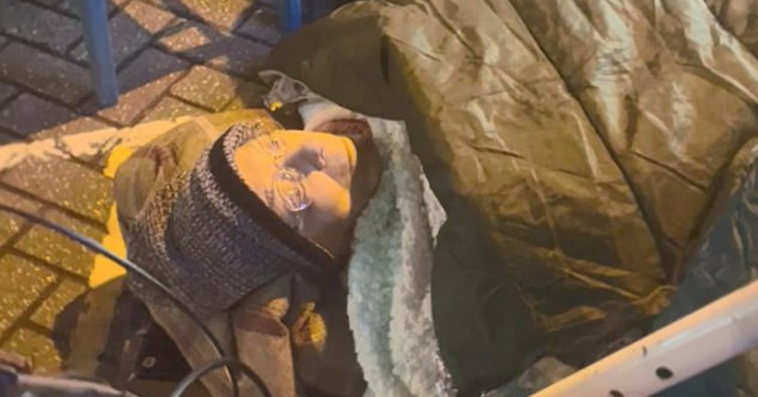On a freezing afternoon in Christchurch High Street, Dorset, 95-year-old Winifred Soanes faced a terrifying and painful experience. After falling and breaking her hip, she was left lying on the cold pavement for more than five hours, waiting for an ambulance.
Despite many phone calls from people trying to help, the emergency services said Winifred was “not a priority.” This left her alone in the freezing weather, depending on the kindness of strangers to survive.
A Fall That Became a Community Crisis

The incident happened around 2:30 PM on a Monday. Winifred was out walking with her 92-year-old husband, Andrew, when she lost her balance and fell to the ground. The pain from her broken hip was so bad that she couldn’t move.
Andrew, who is a diabetic and an army veteran, stayed right by her side. Even though it was very cold and he could have gone inside to warm up, he refused to leave her alone.
People walking by quickly saw that Winifred was hurt and needed help. They called 999 (the UK’s emergency number) multiple times, explaining that she was an elderly woman with a serious injury. But each time, they were told that no ambulance was available, and Winifred wasn’t considered a priority.
Acts of Kindness During a Long, Harrowing Wait

While waiting for the ambulance, people from the community did everything they could to make Winifred comfortable.
Workers from market stalls brought shoe boxes to support her head. Staff from a nearby pub gave her a pillow.
Employees from a store called Mountain Warehouse offered sleeping bags to keep her warm.Local charity shops donated blankets and hot water bottles.
The community also helped Andrew. Even though he was dealing with his own health issues, people gave him food and hot coffee so he could stay by Winifred’s side.
One person who helped, Jennifer Baylis, works at a charity shop. She described how heartbreaking the situation was:
“I can’t tell you how upsetting it was. She actually said, ‘I’m going to die here tonight.’ She was in so much pain, lying on the cold pavement, completely depending on strangers. It’s awful that something like this could happen.”
Jennifer also explained how helpless everyone felt:
“We were all distressed that there was no first responder, no police officer—literally no one came for over five hours. This should not happen in today’s world.”
A Cold Night with No Immediate Help
As the hours passed, the temperature dropped lower, making the situation even more dangerous. David Lovell, the first person to call for an ambulance, shared how cold it was:
“I can’t describe how cold it was. As it got dark, the temperature dropped rapidly. She was lying there in terrible pain, and we couldn’t move her.”
Even though people called the emergency services again and again, they were not given any clear answer on when the ambulance would arrive. Everyone was scared for Winifred and worried about Andrew, who was also out in the cold for so long.
Finally, an Ambulance Arrives

After five long hours, an ambulance finally came at 7:45 PM. Winifred was taken to Poole Hospital, where she is now being cared for and waiting for a special surgery on her hip.
For Andrew, things didn’t get better right away. Being out in the freezing cold for so long gave him a chest infection, which meant he couldn’t visit his wife in the hospital.
Even after everything they went through, Andrew was thankful for the people who helped:
“The situation was terrible, but it’s heartwarming to know that when things are bad, people come together to help.”
Outrage and Calls for Change
Many people who saw what happened were very upset. They criticized the emergency services for not making Winifred a priority.
Jennifer Baylis expressed what many were feeling:
“The NHS (National Health Service) does amazing work once they arrive. But something went very wrong here. No 95-year-old should be left on a pavement, especially in the freezing cold.”
What the Ambulance Service Said
After the incident, the South Western Ambulance Service apologized for the delay:
“We are sorry that we couldn’t provide a timely response. Anytime our care falls below the high standards our patients deserve, it is unacceptable.”
The service explained that they have a problem with handover delays at hospitals. This means ambulances have to wait too long to drop off patients, which keeps them from going to new emergencies:
“To make sure our ambulances can respond to new emergencies, we need to hand patients over to the hospital within 15 minutes. We are working hard with the NHS and social care to improve this.”
A Broken System in Need of Repair
For many people, this event shows just how much pressure the UK’s healthcare and emergency services are under. Even though the doctors, nurses, and ambulance staff work hard, there aren’t enough resources, which leads to long delays.
The way the community helped Winifred and Andrew shows the power of kindness and teamwork. But their experience is also a reminder that the emergency care system needs to improve to keep vulnerable people safe.
What Would You Have Done?
If you were there, how would you have helped? Share your thoughts and talk about this story with your friends and family. Let’s keep the conversation going about how we can make sure this doesn’t happen again.


